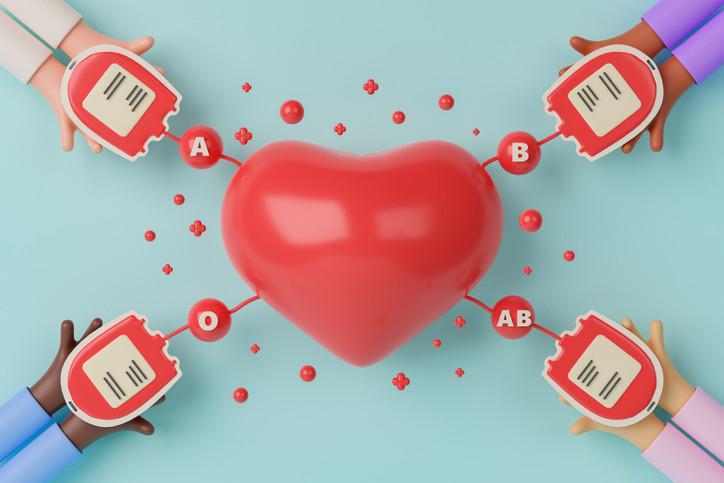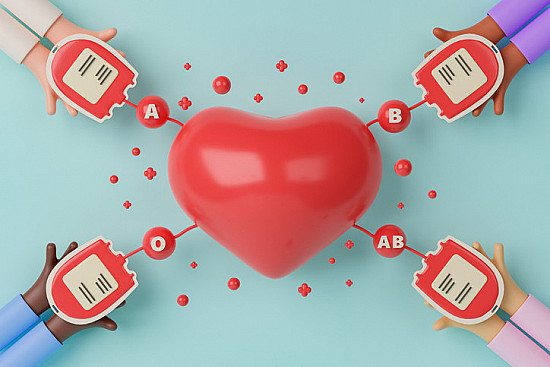New rules revisit limits on blood donations by gay and bisexual men.

While the FDA rules for blood donation were revised twice in the last decade, one group — men who have sex with men (MSM) — continued to be turned away from donating. Now new, evidence-based FDA rules will focus on individual risk rather than groupwide restrictions.
Medical experts consider the new rules safe based on extensive evidence. Let’s review the changes here.
The new blood donation rules: One set of questions
The May 2023 FDA guidelines recommend asking every potential blood donor the same screening questions. These questions ask about behavior that raises risk for HIV, which can be spread through a transfusion.
Blood donation is then allowed, or not, based on personal risk factors for HIV and other blood-borne diseases.
Questions for potential blood donors
Screening questions focus on the risk of recent HIV infection, which is more likely to be missed by routine testing than a longstanding infection.
The screening questions ask everyone — regardless of gender, sex, or sexual orientation — whether in the past three months they have
- had a new sexual partner and engaged in anal sex
- had more than one sexual partner and engaged in anal sex
- taken medicines to prevent HIV infection (such as pre-exposure prophylaxis, or PrEP)
- exchanged sex for pay or drugs, or used nonprescription injection drugs
- had sex with someone who has previously tested positive for HIV infection
- had sex with someone who exchanged sex for pay or drugs
- had sex with someone who used nonprescription injection drugs.
When is a waiting period recommended before giving blood?
- Answering no to all of these screening questions suggests a person has a low risk of having a recently acquired HIV infection. No waiting period is necessary.
- Answering yes to any of these screening questions raises concern that a potential donor might have an HIV infection. A three-month delay before giving blood is advised.
Does a waiting period before giving blood apply in other situations?
Yes:
- A three-month delay before giving blood is recommended after a blood transfusion; treatment for gonorrhea or syphilis; or after most body piercings or tattoos not done with single-use equipment. These are not new rules.
- A waiting period before giving blood is recommended for people who take medicines to prevent HIV infection, called PrEP (pre-exposure prophylaxis). PrEP might cause a test for HIV to be negative even if infection is present. The new guidelines recommend delaying blood donation until three months after the last use of PrEP pills, or a two-year delay after a person receives long-acting, injected PrEP.
Who cannot donate blood?
Anyone who has had a confirmed positive test for HIV infection or has taken medicines to treat HIV infection is permanently banned from donating blood. This rule is not new.
Why were previous rules more restrictive?
In 1983, soon after the HIV epidemic began in the US, researchers recognized that blood transfusions could spread the infection from blood donor to recipient. US guidelines banned men who had sex with men from giving blood. A lifetime prohibition was intended to limit the spread of HIV.
At that time, HIV and AIDS were more common in certain groups, not only among MSM, but also among people from Haiti and sub-Saharan Africa, and people with hemophilia. This led to blood donation bans for some of these people, as well.
A lot has changed in the world of HIV in the last several decades, especially the development of highly accurate testing and highly effective prevention and treatment. Still, the rules regarding blood donation were slow to change.
The ban from the 1980s for MSM remained in place until 2015. At that time, rules were changed to allow MSM to donate only if they attested to having had no sex with a man for 12 months. In 2020, the period of sexual abstinence was reduced, this time to three months.
Why are the blood donation guideline changes important?
- Removing unnecessary restrictions that apply only to certain groups is a step forward in reducing discrimination and stigma for people who wish to donate blood but were turned away in the past.
- The critical shortage in our blood supply has worsened since the start of the COVID-19 pandemic. These revised rules are expected to significantly boost the number of blood donors.
The bottom line
Science and hard evidence should drive policy regarding blood donation as much as possible. Guidelines should not unnecessarily burden any particular group. These new guidelines represent progress in that regard.
Of course, these changes will be closely monitored to make sure the blood supply remains safe. My guess is that they’ll endure. And it wouldn’t surprise me if there is additional lifting of restrictions in the future.
